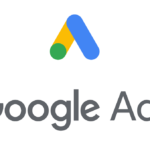
Are you new to SEO and wondering how to make sense of all the rules, regulations, and best practices? Search engine optimization (SEO) can seem intimidating at first, but with a few key strategies in place, you can quickly start to see positive results. In this blog post, I’m going to present four essential guidelines for beginners who want to kick-start their organic search efforts and improve visibility in search engines such as Google.
Top 4 Useful Guidelines For SEO Beginners
If you’re starting out with SEO or want reassurance that your approach is up-to-date with the latest techniques and guidelines, then read on—you’ll find valuable information below!
1. Understand the Basics of SEO
SEO, or search engine optimization, is a key part of digital marketing and one of the essential tools needed to succeed in today’s online world. It is important to understand the various types of SEO, from on-site optimization (such as keyword targeting) to off-site optimization (building backlinks). Looking into this guide to choosing SEO keywords is also something that is important for any business using digital techniques. By understanding the basics of SEO, such as its importance and how to use it correctly, businesses can gain an edge over their competition. Knowledgeable use of SEO strategies allows companies to promote themselves better, ensuring better visibility and more conversions on their websites.
2. Research Your Competition and Target Audience
Researching your competition and target audience is one of the most important aspects of SEO for beginners. Knowing who you’re competing against, as well as understanding the wants and needs of your potential customers can help you create a successful SEO strategy that will drive traffic to your website. Researching your competitors and target audience will give you the information needed to create content that stands out from the crowd, optimize content for search engine rankings, increase web traffic, and better understand customer needs.
When researching your competition, take time to review their website design and content, analyze how they are using keywords to capture more traffic from search engines, and identify what methods they use to stay ahead in the industry. By doing this research, you can learn about their strengths and weaknesses, which will help you create a more effective SEO strategy tailored to your own business.
When researching your target audience, consider who they are and what they want. You should also research their online behaviors to find out what platforms they use most often and where they spend the most time when searching for information. Knowing this information can help you create content that resonates with your potential customers and improve the visibility of your website in search engine rankings. Additionally, understanding customer needs can provide valuable insight into how to optimize content for search engine rankings and drive more web traffic.
3. Find Appropriate Keywords for Content Creation
If you’re looking to create content with maximum reach and impact, one of the key elements to focus on is choosing appropriate keywords. Effective keyword use in your writing means zeroing in on relevant terms that have high search volume—words that appear often when customers are looking for information. This requires you to understand your audience’s needs and conduct keyword research within the context of creating meaningful content that resonates with them. Specific strategies include brainstorming for semantically linked words as well as exploring Google Trends to see which terms are gaining traction over time. Additionally, consider similar keywords outside of your niche for fresh ideas specific to influencers and personalities who could share or otherwise promote your content. Keyword selection isn’t just about getting found; it’s about crafting content people actually want to find.
4. Monitor Your Results and Make Adjustments
One of the most important aspects of a successful online marketing campaign is regularly measuring your progress and making adjustments to ensure maximum effectiveness. Using an analytics tool such as Google Analytics provides valuable insight into how people are interacting with your content, allowing you to tailor it for more effective results. By closely monitoring your results, you’re able to adjust messages and tactics to target the right audiences and ensure your campaign continues on its path toward success. Taking the time to track progress not only offers valuable insight but also helps you stay ahead of measurable metrics so that key decision-making processes remain at the forefront. Additionally, when tracking across multiple platforms, adjustments can be made accordingly to optimize return on investment. In short, measurement and adjustment through analytics tools such as Google Analytics are necessary steps for an effective online marketing campaign.
SEO is an invaluable tool when it comes to gaining visibility for your website. Following the outlined steps will help you gain a better understanding of SEO and develop a successful strategy that will effectively grow your online presence. Keep in mind that SEO is constantly changing, and you need to stay updated on best practices in order to be successful. Researching competitors and utilizing social media are key elements that can potentially give you an edge over your competition. Also, creating quality content that engages visitors is essential for gaining the trust of potential customers and increasing visibility. With dedication and hard work, implementing these tips will have great rewards in both the short-term and long-term on your road toward digital success.
Read More:Importance Of Search Engine Optimization





